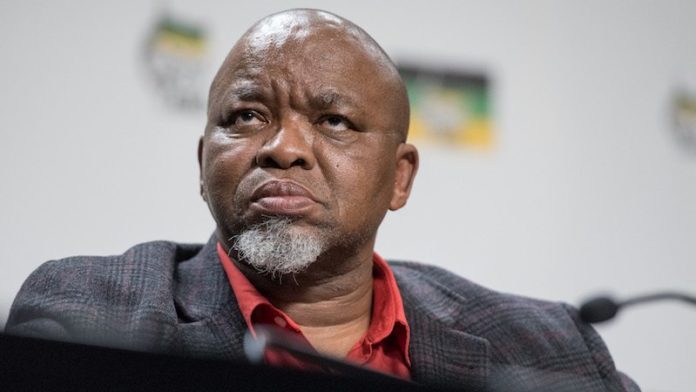
SOUTH Africa’s Minister of Minerals and Energy, Gwede Mantashe gave an open-ended answer to the question whether his department would be appealing the recent Pretoria High Court ruling on the Mining Charter.
The background to the application, brought by the Minerals Council SA, is a long-running dispute over whether a black empowerment deals are recognised by the government in perpetuity. The department of mineral resources and energy has maintained that topping up is necessary and if, it does not occur, and other elements of the Mining Charter are not met, a company can lose its mining licence.
The court ruled that the Charter is policy, not law, and therefore it could not be used to demand top-ups. It set aside various clauses in the charter.
Answering questions at the Joburg Indaba, a conference, Mantashe said: “To me, appealing or not appealing the latest charter ruling is not the issue. I may appeal to ensure the smooth running of the department. But for me, the major issue is whether the industry is committed to transformation, and will we see more black capitalists. If the industry is committed to transformation, we will not be appealing.”
Asked what he meant by a “black capitalist”, Mantashe said he was not referring to well-known black capitalists such as Patrice Motsepe of the Johannesburg-listed diversified mining group African Rainbow Minerals, but to emerging miners.
“I want to see those small miners who run one mine in Witbank or the Northern Cape growing into successful and sustainable mining companies. I am talking about the small miners who have no money and they need easier access to finance,” said Mantashe.
In his keynote address, Mantashe said transformation was not about numbers, it was about changing the system, which was an imperative for the future of the industry. “We have agreed that the Mining Charter remains the tool to drive transformation. It cannot be theoretical, it must be practical.”
Exploration famine
Mantashe also said he wanted the industry to contribute 12% to South African GDP, up from its 9.1% contribution at present, which in turn was an improvement from its previous level of 8.1%. This improvement should be coming not only from prices but also from higher output.
Conference chairman Bernard Swanepoel, a former CEO of Harmony Gold, pointed out that exploration spend last year fell to its lowest level since 1994. “This is despite promises by the minister to stimulate exploration,” he said.
The South African mining sector recorded bumper profits in 2020 which helped the country to achieve a massive surplus in its balance of payments.
Mantashe said his department’s goal was that South Africa should be contributing at least 5% of global exploration spending within the next five years. Government itself would be investing in exploration through the Council for Geoscience. In all spheres, government was determined to address regulatory bottlenecks and help to stimulate small businesses.
Mantashe said the department’s goal was to offer a modern, user-friendly cadastral system to investors. Procurement was at an advanced stage and an announcement would be made shortly. The Council for Geoscience was currently preparing to integrate geological information into the system and this would be made available to all investors.










